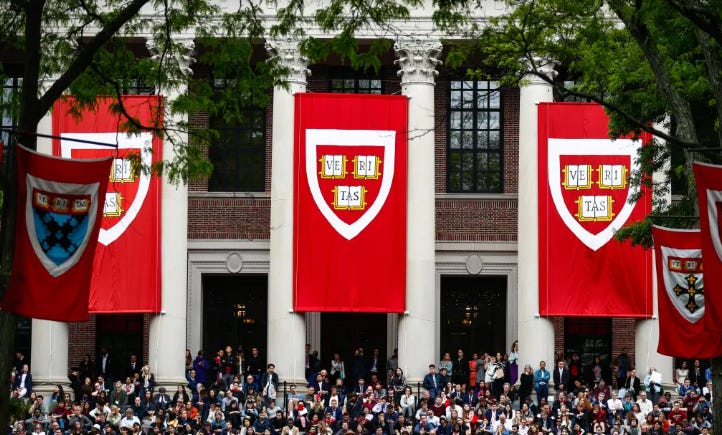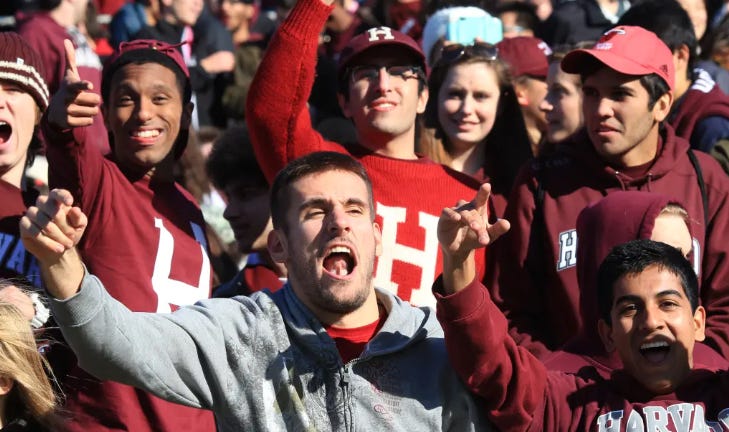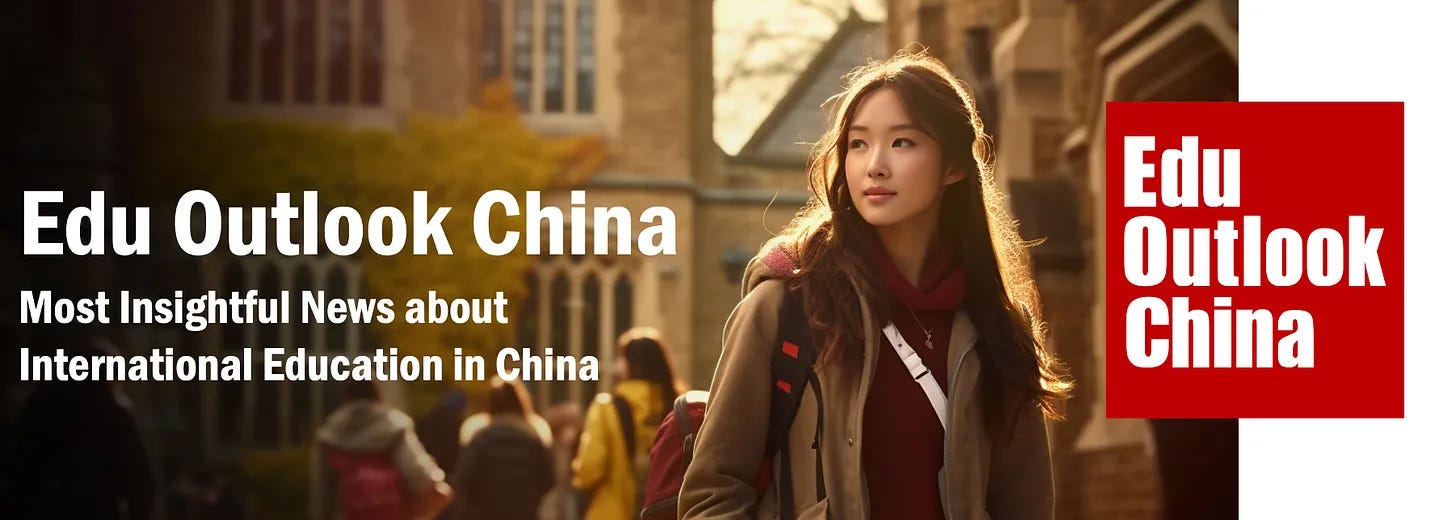How much does it cost to buy a Harvard diploma? Controversy surrounds American elites donating $37 billion to get their children into Harvard.
The generation born in the 1980s and 1990s often heard Harvard's motto during their childhood. One of the most enduring mottos is, "Only by studying earlier and harder than others can one taste the flavor of success."
Getting admitted to Harvard is undoubtedly considered a significant milestone in the academic journey of students.
Ironically, this world-renowned institution with a 387-year history has faced an increasing number of scandals in recent years.
The ultimate sanctuary for students worldwide has been exposed multiple times, suggesting that access can be as simple as being on a "Z-list."
Perhaps, the notion of educational fairness has always been relative.
Effort and talent are indeed real, but the skewing of resources under the influence of money and power has always been a harsh reality.
The New York Times exposed on November 6th that Harvard University has been preparing a "Z-list" for students with poor academic records but substantial donors or from influential families.
Being on this list is equivalent to being admitted.
"This list has brought the school a staggering $37 billion in revenue."
At first glance, this revelation is quite shocking, but in reality, it's no longer a well-kept secret.
The "Z-list" was first exposed by the anti-affirmative action organization "Students for Fair Admissions." This organization had previously filed a lawsuit against Harvard for alleged discrimination against Asian-American applicants, which unveiled Harvard's preferential admissions and previously confidential admission processes.
According to the lawsuit, about 50-60 students are admitted to the "Z-list" each year, and the majority of these admitted students are Caucasian, with nearly half of them having Harvard alumni parents.
What these students have in common is that they all made substantial donations to Harvard University, ranging from $1 million over four years to several million dollars.
The existence of the "Z-list" can be traced back to the 1970s. Harvard's admissions office coined the term "Z-list" because this group represents the last batch of students admitted in each admissions cycle, following regular admissions and waitlist admissions.
Students on the list are required to take a gap year before enrolling in the second year.
Harvard doesn't seem to be concerned that these less qualified students might lower its overall academic standards and reputation.
There is a significant loophole in this approach.
The "data ghosts" who enroll after a gap year serve as an example. The academic data of mediocre students admitted through this method are not included in the freshman report, thus avoiding any impact on Harvard's academic assessments or university rankings.
This is indeed related to the preconceived notions people have. People tend to remember Harvard's prestigious reputation, and negative news about Harvard is often not widely known or is quickly forgotten.
As early as 2018, The Harvard Crimson, the university's student newspaper, reported on the "Z-list."
The statement reads, "The 'Z-list' is a deferred admission quota offered by Harvard to a small number of students each year. However, in reality, those on the 'Z-list' are often either wealthy or influential."
Brian Taylor, Managing Partner of Ivy Coach, mentioned in an interview with The Washington Post, "The 'Z-list' is prepared for important individuals who are often close friends or family members of leaders of various countries or major donors."
There have been rumors circulating that Malia Obama, the daughter of Barack Obama, entered Harvard in a similar manner. On the Harvard acceptance day, December 15th, 2017, her name was not seen on the list.
It wasn't until the following May that this news began to spread. Malia Obama chose to take a gap year and deferred her enrollment, which aligns with the admission method similar to the "Z-list."
The "Z-list" is not limited to Harvard University; it has also been mentioned at other prestigious U.S. universities such as Cornell University, Princeton University, Columbia University, and more.
According to Taylor, Cornell University utilizes a "guaranteed transfer" system. Under this system, applicants with test scores or GPAs below the standard are informed to attend their freshman year elsewhere and then reapply.
If they maintain a certain average grade, typically around a B average, during their freshman year, they are guaranteed admission as transfer students to Cornell University for their second year.
Those with strong connections can frame this as a form of "deferred admission" or "transfer admission," but when exposed as individual cases with weak backgrounds, it often turns into a scandal involving cheating and bribery.
Through such methods, children of real estate tycoons, billionaires, and celebrities have gained admission to world-renowned universities, including Harvard, Yale, Stanford, and Cornell, among others.
In the United States, the more prestigious the university, the more undisclosed admissions "unwritten rules" tend to exist.
Having a flawless pre-college record and a perfect SAT score does not necessarily guarantee admission to a top-tier university like Harvard.
Conversely, children of influential figures who have donated a library to Harvard or the offspring of university staff members have a significant likelihood of being admitted.
In the book "The Price of Admission," such facts were revealed:
The book mentions legacy policies that favor alumni's children, special treatment for the wealthy offspring who donate money, and various cases of backdoors being opened for celebrity children in top-tier American universities such as Harvard, Duke, and Brown.
Prominent wealthy individuals can donate a substantial sum to a prestigious university, and a few years later, their children may be admitted to that university.
This phenomenon has long been considered a "consensus" in American society.
Unlike many universities in other countries, most top-tier American universities are private institutions, and their operation relies heavily on annual alumni donations.
Universities use the funds they receive to support laboratories and teams with the potential to make groundbreaking achievements on campus.
On one hand, public universities have a mission to provide education to the general population, including ordinary students, and when admitting students, they tend to prioritize outstanding students from various backgrounds.
On the other hand, private universities often consider individuals who can bring a substantial return on investment when admitting students. This includes academic superstars, the offspring of entrepreneurs, the children of wealthy families, and the offspring of government officials.
For example, in the Harvard Class of 2021, 17% of the new students came from super-wealthy families with annual incomes of $500,000 or more, and 17.5% of those surveyed had Harvard alumni in their families.
So, has the notion that "knowledge changes destiny" become a false proposition?
Not necessarily.
For most ordinary students aspiring to attend Harvard and similar world-renowned universities, the only pathway is to study diligently and work hard.
However, it cannot be denied that on this journey, your family greatly influences how much educational resources you can access, determines your learning environment, and shapes your perspectives and experiences.
If you are not naturally inclined toward academics and lack the drive to excel, it becomes particularly important to assess your own capabilities realistically.
Hidden rules like the "Z-list" not only apply to university admissions, and what has been exposed is just the tip of the iceberg.
But we believe that the scale of educational fairness is always tilting toward fairness.
What we can do is continuously expose and break the cycle of educational injustice beneath the "glamorous packaging" and provide more ordinary students with a relatively fair learning environment.





